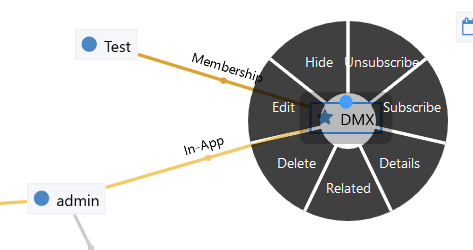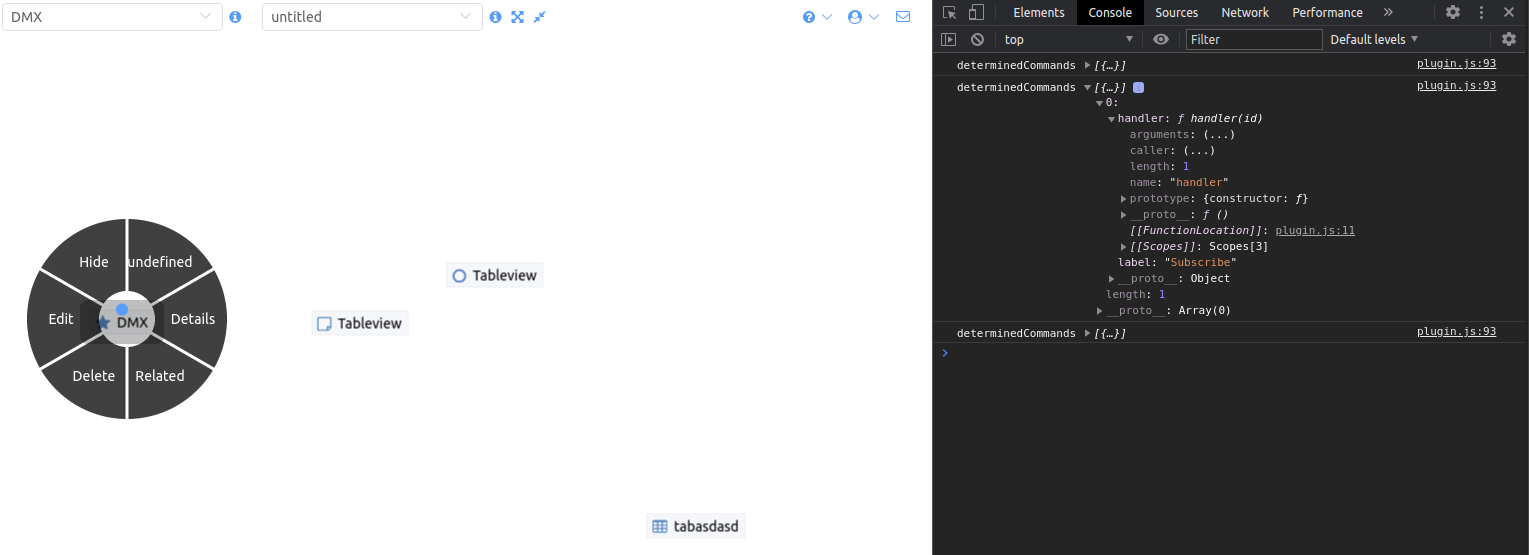I am currently migration my webpages application from DM4 to run with DMX. In DM4 webpages integrated with the dm4c API which, as of DMX, is quite different. I would be glad if you could give me some help on how to update my webclient extension efficiently.
Here is a brief overview of what I need to adapt:
I guess, the payload models might have changed slightly syntactically (not using frankenstein notation, and other URIs), but the same functionality is exposed by the dmx-webclient or dmx-topicmaps module in form of Vuex “actions”, right?
- Here is the webclient state I utilized in DM4
dm4c.selected_object
// -> to inspect "children"
I guess in DMX there is a similar object always representing the currently selected topic in a given topcimap - only managed by the Vuex store now. Is this still available from withi my plugin.js e.g. somewhere like store.topicmaps.selected_object?
- Furthermore I used the following calls in combination to add custom webpages functionality to the Webclient and orchestrate the topicmap renderer following my commands:
2.1: dm4c.do_reveal_topic(id, "show")
2.2: dm4c.do_reveal_related_topic(id, "show")
2.3: dm4c.create_topic("de.mikromedia.page")
2.4: dm4c.create_assoc("dmx.core.association",
{topic_id: webpage.id, role_type_uri: "dmx.core.default"},
{topic_id: section.id, role_type_uri: "dmx.core.default"}
)
2.5: dm4c.show_topic(section, "edit", undefined, true) // do_center=true
2.6: dm4c.show_association(assoc, "none")
2.7: dm4c.get_topic_related_topics(webpageId, {
"assoc_type": "dmx.core.association",
"others_topic_type_uri": "de.mikromedia.site"
}, false)
I would be glad for some support e.g. links to follow so I could read about how to adapt my webclient extensions without much trial and error.
Last but not least
- I asked myself if I have access to a Vue instance in (3.a) my
plugin.jsand (3.b) my `plugin_store.js" to invoke the ElementUI notify component, like “this.$notify” directly while not being within the scope of a vue template.
I would be very thankful for some guidance and support here…



